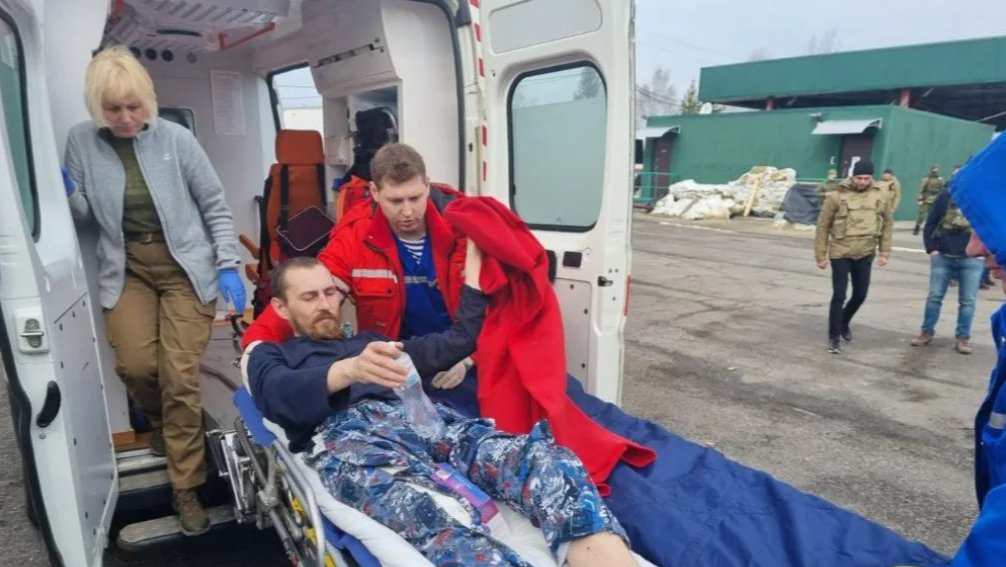On 24 March, the Ukrainian Coordination Headquarters for the Treatment of Prisoners of War reported the transfer of severely wounded prisoners whose condition allowed for transportation to the Russian side. “Ukraine has carried out a humanitarian action and handed over to Russia all severely wounded occupants captured since the beginning of the large-scale invasion,” the HQ said in a statement. “Respecting its international obligations, in accordance with Articles 109-114 of the Geneva Conventions and with the participation of the International Committee of the Red Cross, Ukraine unilaterally handed over the seriously wounded and seriously ill captive occupiers to the Russian side.
In this case it is not a question of exchanging prisoners of war but of repatriation: the return of severely wounded prisoners without any conditions, as stipulated by international humanitarian law.”
However, the exact number of prisoners handed over to Russia has not been announced. The accompanying photos and video show bandaged people, some of them in military uniforms, being transferred from one ambulance to another medical vehicle. Three of the wounded men are thanking the AFU soldiers and Ukrainian medical personnel for their assistance. The Russian side has not officially commented on the prisoner transfer or Kyiv’s statements.
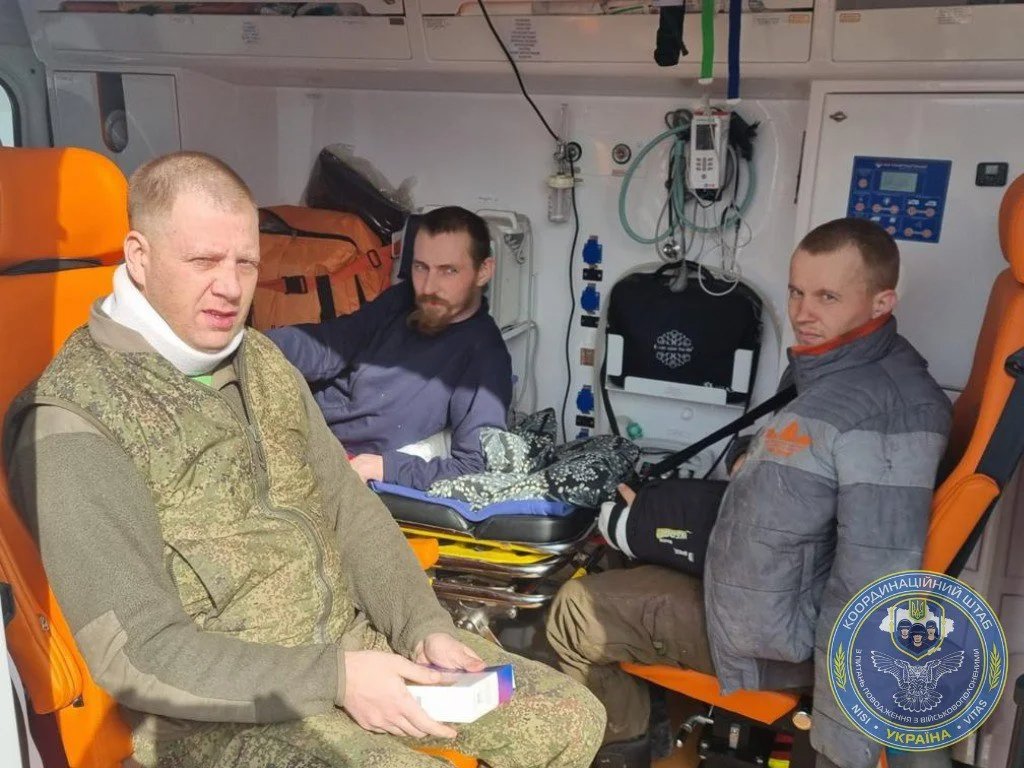
Russian prisoners of war during the transfer. Photo: Ukrainian coordination headquarters for the treatment of POWs
“Ukraine deliberately does not announce the number of prisoners transferred, thus showing that this is not a bargain but an absolutely humanitarian action,” Ukrainian military expert Roman Svitan told Novaya-Europe. Our interviewee explained that Ukraine is also ready to hand over non-transportable prisoners. The question is how to do it technically.
The Ukrainian HQ also said in a statement that “the aggressor state is systematically disregarding international norms, and still holding thousands of Ukrainian citizens hostage, including seriously ill and wounded, civilians, children and women, elderly people, as well as military personnel who were captured by Russia even before the large-scale invasion began”.
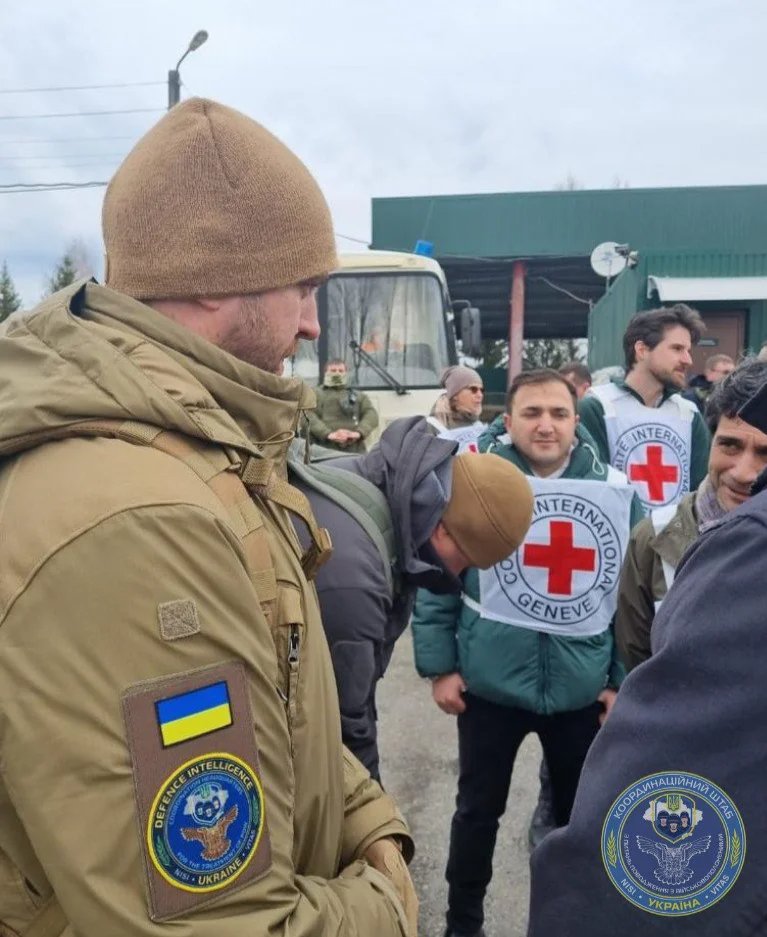
Photo: Ukrainian Coordination Headquarters for the Treatment of POWs
All these categories of prisoners, according to International Humanitarian Law, shall be returned to Ukraine through repatriation without any conditions.
“Russia not only continues to hold civilians and non-combatants hostage, but also refuses to allow representatives of the International Committee of the Red Cross to visit their places of detention,” the coordination headquarters reports, “does not provide them with communication with their families, adequate food, medical care, deliberately creating inhumane conditions of captivity”. The headquarters calls on the international community to increase pressure on the aggressor state to force Russia to comply with international humanitarian law and release all illegally detained Ukrainian citizens from captivity.
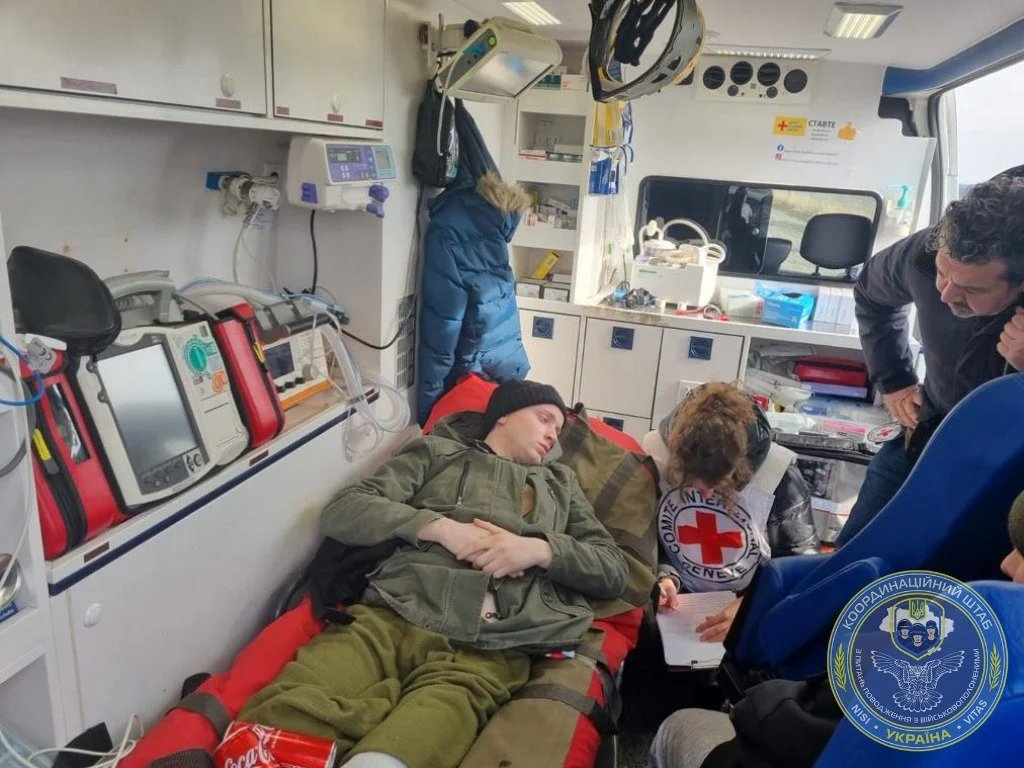
Photo: Ukrainian Coordination Headquarters for the Treatment of POWs
“The side holding the prisoner is responsible for his life,” says Roman Svitan. “If a foreign soldier dies in custody, it can be considered a war crime. Therefore, it is not profitable for a law-abiding participant in a conflict to keep seriously wounded or seriously ill prisoners. I remember when I myself was traded out of the DPR [the self-proclaimed Donetsk “people’s republic”]. When I was in captivity in 2014, I got septicaemia after being tortured, I was clinically dead. Then Igor Bezler, who was holding me and planning to shoot me, said that they had to swap me before I died. By that time, the Ukrainian side had already verified me as a prisoner of war.”
Our interviewee says that handing over a seriously wounded prisoner does not pose any risks for the returning side, because after serious wounds and amputations, the person will definitely not return to the front.
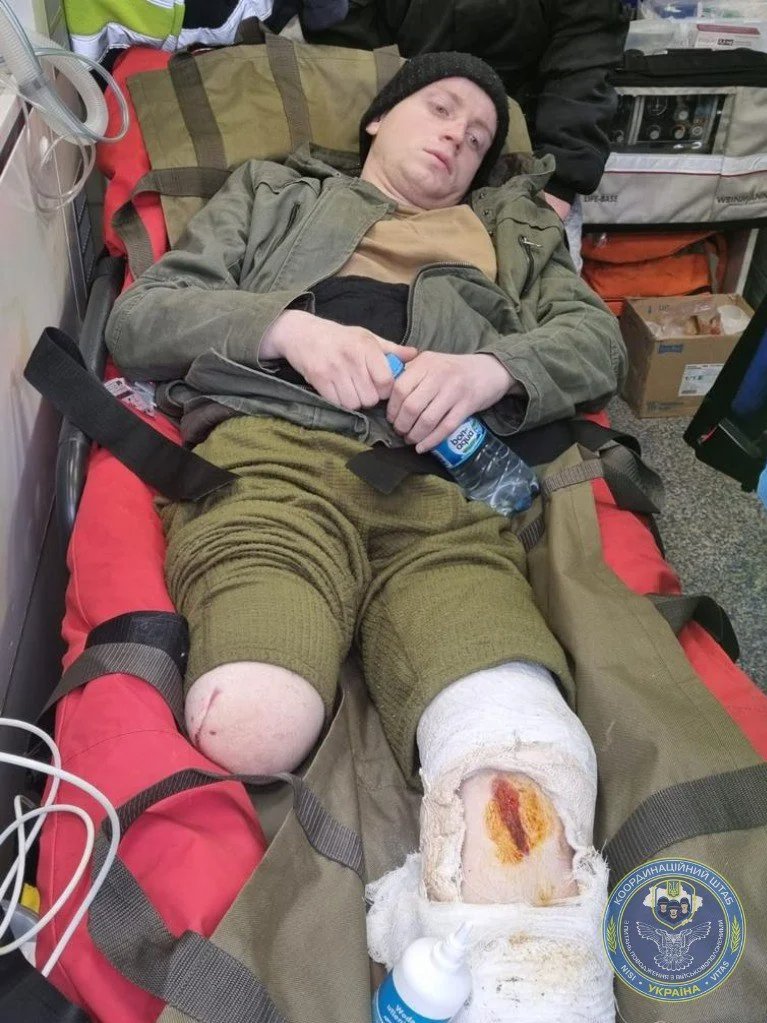
Photo: Ukrainian Coordination Headquarters for the Treatment of POWs
“Well done respecting the conventions, Ukrainians!” Valentina Melnikova, executive secretary of Russia’s Union of the Committees of Soldiers’ Mothers, told Novaya-Europe. “All exchanges or transfers of prisoners, all lists of those to be exchanged, and the details of the procedure, are always prepared in a state of maximum secrecy. There is usually a ‘bargaining’ beforehand, in which both sides discuss the number of the exchanged, provide information on those being held, and discuss the candidacies of those who will gain their freedom. I think Ukraine now expects Russia to reciprocate with a similar move. I recently saw official figures announced by Kyiv that there is a very serious overflow of wounded in hospitals and hospitals in the Russian-controlled Luhansk region. Why treat outsiders when there is no room for their own?”
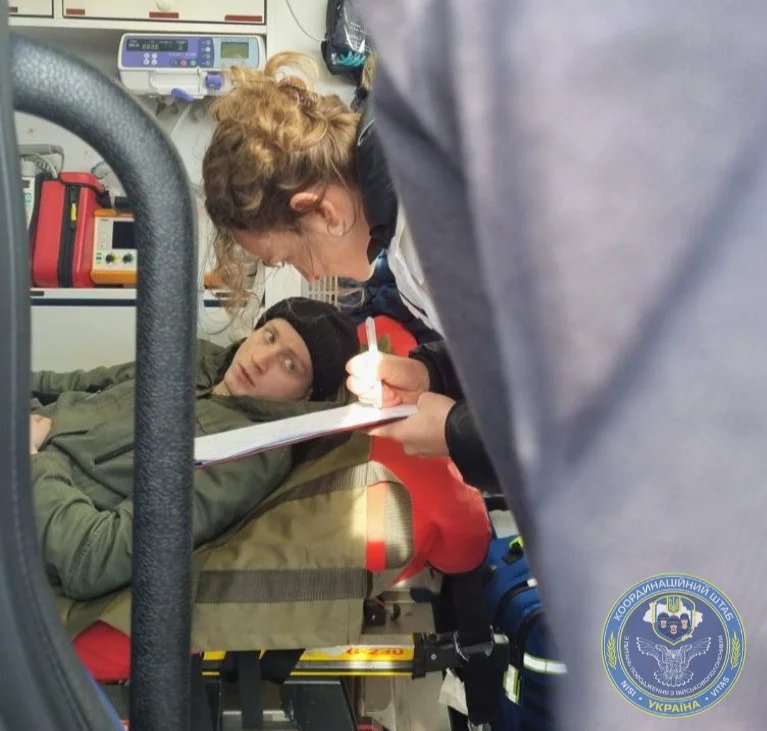
Photo: Ukrainian Coordination Headquarters for the Treatment of POWs
According to Roman Svitan, hundreds of Russian prisoners of war are being held in Ukraine today. At the same time, Russia is holding thousands of AFU servicemen. According to our interviewee, the proportion is about one to three. It is not known how many wounded are being held by both sides.
Join us in rebuilding Novaya Gazeta Europe
The Russian government has banned independent media. We were forced to leave our country in order to keep doing our job, telling our readers about what is going on Russia, Ukraine and Europe.
We will continue fighting against warfare and dictatorship. We believe that freedom of speech is the most efficient antidote against tyranny. Support us financially to help us fight for peace and freedom.
By clicking the Support button, you agree to the processing of your personal data.
To cancel a regular donation, please write to [email protected]
